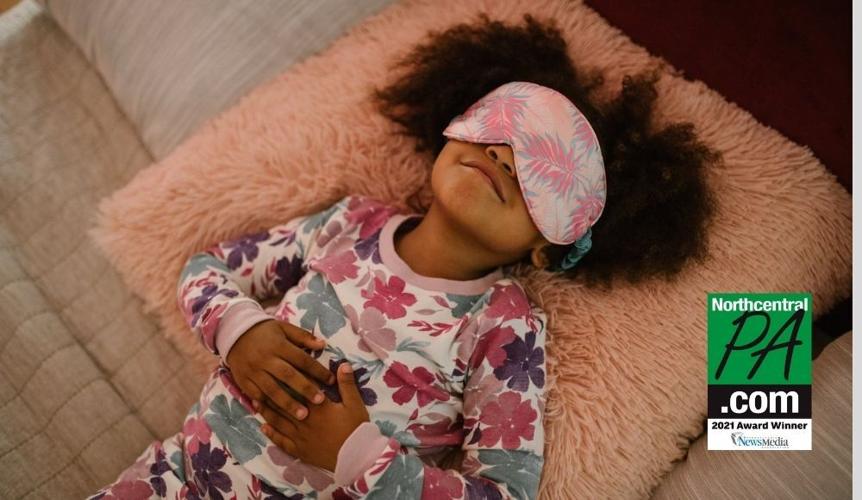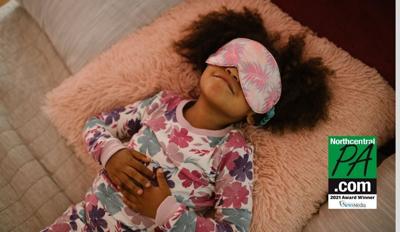Sleep is an essential building block for your child’s mental and physical health. But if you’re finding it impossible to help your child sleep, you’re not alone.
The American Academy of Pediatrics estimates that sleep problems affect 25 to 50% of children and 40% of adolescents. Studies have shown that kids who regularly get an adequate amount of sleep have improved attention, behavior, learning, memory, and overall mental and physical health, while inconsistent sleep schedules and disrupted sleep can lead to health issues and affect your child’s brain development.
How Much Sleep Does My Child Need?
Understanding their sleep needs is the first step towards providing better sleep for your children. Each child is unique, and the hours of recommended sleep depend largely on age.
Newborn to age 2: Bedtime and naptime are highly productive periods for your baby and toddler, and it’s no surprise they spend most of their days asleep. Sleep has important effects on growth, especially in early infancy. In toddlers, napping appears to be necessary for memory consolidation, attention, and motor skill development. It’s recommended that infants and toddlers under age 2 get between 12 – 16 hours of sleep a day.
Age 3 to 12: Children in pre-school and elementary school need about 10 to 11 hours of sleep a night. During these years, a child’s brain and body are continuing to develop at a rapid pace and adequate sleep supports healthy development. Sleep helps restore resources that were used up during the day, which is very important in active young children. A well-rested brain can solve problems, learn new information and enjoy the day a lot more than a tired brain. Some areas of your child’s brain are even more active while they sleep.
Teenagers: It’s recommended that teenagers get between 8 to 10 hours per night. Teens love to label themselves “night owls,” trading stories of all-nighters and sleeping away an entire Saturday. Though teenagers and their sleep habits may be challenging for parents, it’s not entirely your child’s choice as these sleep habits are a response to physical changes that occur during puberty. During these developments, teens experience a natural shift in circadian rhythm which makes it more difficult for them to fall asleep. Add in early school start times and an increase in homework, extracurricular activities and sometimes a part-time job, and sleep deprivation in teens becomes common.
Tips to Encourage Healthy Sleep Habits
With all the demands on your family, trying to get your kids to bed at a decent hour feels like an uphill battle sometimes. However, the importance of your kids’ sleep schedule can’t be overstated. Consider the following tips to help your child get to bed at a decent time and fall asleep quickly.
Set a consistent bedtime. Set a bedtime, no matter how old your children are, and stick to it as much as possible. This will likely mean other aspects of the evening have to be scheduled, too. This may vary by day of the week but aim to keep the schedule the same or close to the same every day. It is especially important to keep wake times on weekends as close as possible to wake times on weekdays.
Keep to a bedtime routine. Along with schedule, have a standard bedtime routine, especially for elementary schoolers. Have a snack, bathe, read books, and brush teeth. Whatever your nightly routine, keep it the same to prepare your child for sleep by going through the same steps.
Cut out things that keep your child awake. Studies have shown that light from TVs, tablets, and smartphones can affect our body clock and make it difficult to fall asleep. Set screen-free time an hour or more before bed to help your child fall asleep. In addition to screens, try to avoid caffeine, heavy exercise, sugary foods, and too much liquid before bed as well.
Create a safe, sleep-friendly space. Make sure your child’s room is dark, quiet, and a comfortable temperature. Include fuzzy, comforting blankets or favorite stuffed animals on the bed.
Set aside time for a nap. Parents know naps are essential for young children, however, they remain beneficial over the years as they grow. Children are busy, and sometimes 10 hours of sleep a night is hard to get. If your child is tired during the day, encourage him or her to take a 20-minute nap after school. Short naps can provide energy and still allow them to fall asleep at their regular bedtime.
Avoid use of over-the-counter sleep medications before speaking to your doctor. Use of such medications may be counterproductive if this practice supplants the use of more effective and long-lasting behavioral treatments.
Getting a good night’s sleep prepares your child for a better day, with less moodiness and improved concentration. It also promotes better health overall. Plus, when your child isn’t sleeping, it’s likely you aren’t either.
If your child is having trouble sleeping or staying asleep, or if you are concerned about your child’s sleeping habits, do not hesitate to reach out to your child’s pediatrician. He or she can help you with possible opportunities to change sleep habits, identify possible health issues affecting sleep, or recommend you to a sleep specialist to further evaluate your child’s sleep habits.

Olufunke Oladejo, MD, is a pediatrician with UPMC Pediatrics and sees patients at UPMC Williamsport, 700 High St., 9th Floor, Williamsport. To schedule an appointment with Dr. Oladejo, call (570) 321-2810. For more information, visit UPMC.com/PediatricsNCPA.













